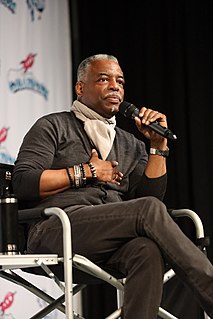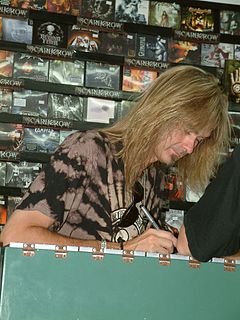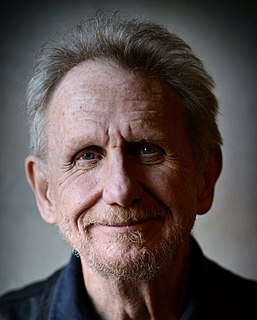A Quote by George Takei
At the core of 'Star Trek' is Gene Roddenberry's vision of the future. So much of science-fiction is about a dystopian society with human civilization having crumbled. He had an affirmative, shining, positive view of the future.
Related Quotes
To be a science fiction writer you must be interested in the future and you must feel that the future will be different and hopefully better than the present. Although I know that most - that many science fiction writings have been anti-utopias. And the reason for that is that it's much easier and more exciting to write about a really nasty future than a - placid, peaceful one.
It had also been my belief since I started writing fiction that science fiction is never really about the future. When science fiction is old, you can only read it as being pretty much about the moment in which it was written. But it seemed to me that the toolkit that science fiction had given me when I started working had become the toolkit of a kind of literary naturalism that could be applied to an inherently incredible present.
As a kid, I didn't need to be convinced the future promised peril and oppression, so when I started thinking up the middle-grade science fiction novel that became 'The Boy at the End of the World,' it seemed only natural to build the story around a dark vision of the future. In my book, civilization has nearly destroyed itself.
That's what 'Star Trek' was: We don't know how to make an ideal society, but we're going to portray that, and then we're going to work backward. I think that's why science fiction - despite the dystopian parts - comes out of this super ideal that, eventually, we will get to some better place where we actually live up to our ideals.
How could I have kept out this incredible fiction? That's when it all started for me. I was, and still am, a HUGE Star Trek fan. "Songs Of The Ocean" is my tribute to this great story, and it's based on the Star Trek IV movie, the one in which they go back in time. [The Voyage Home ; It's the one where they bring a pair of whales to the future -ed.]
Science fiction also provides a sense of nostalgia that is always present when it comes to Palestine, in that whenever we talk about Palestine, it is never in the present, but either remembering a past or imagining a better future. Submitting gritty Middle Eastern politics to high production sci-fi in this manner not only underlines the absurdity of the situation, but brings about a dystopian future scenario.

































